The Middleton Rector who claimed to see the Virgin Mary
- Published
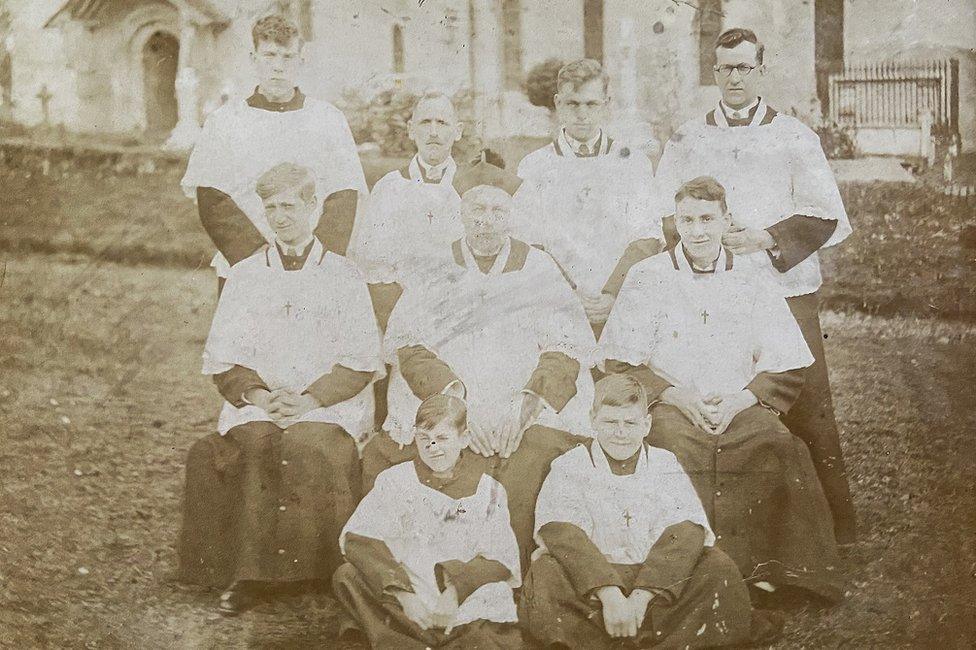
Father Clive Luget, centre, arrived in Middleton in 1931
Ninety years ago a tiny hamlet on the Essex-Suffolk border found itself at the centre of a national media storm when its rector claimed to have experienced visions of the Virgin Mary. What were the Visions of Middleton and why, today, are they all but forgotten?
A 15th Century chronicle stored at Canterbury Cathedral, external tells of two dragons fighting at Middleton. Even if you took the tale of sparring dragons at face value, it still might not be the strangest thing to have happened in the village.
That honour, arguably, belongs to events involving the hamlet's former rector, Father Clive Luget.
The 48-year-old arrived in Middleton in 1931 from Walthamstow in London. Then, one Sunday in February 1933, he told his congregation at the 12th Century All Saints Church about a series of unusual events in the village.
Robert Halliday, who has carried out extensive research into the Father Luget story and wrote a comprehensive account of his findings 20 years ago for Ecclesiology Today, external, says a number of people in the village - including both Father Luget and an 11-year-old called Bertie Andrews - claimed to see a glowing ball of light moving around the hamlet.
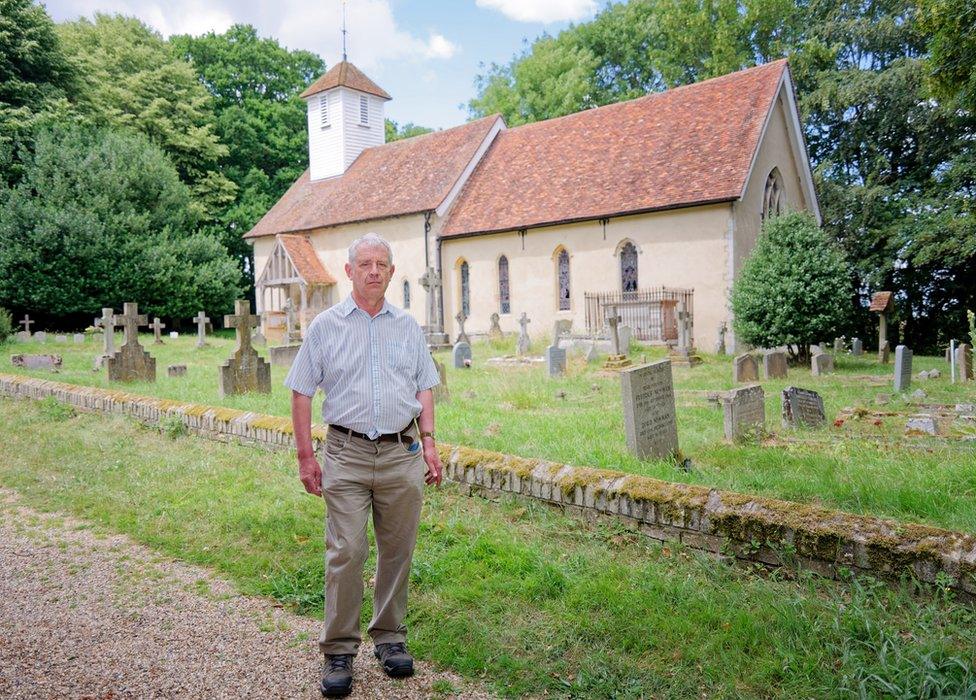
Robert Halliday has researched, written and spoken about Father Luget
Father Luget, Mr Halliday says, claimed to have seen the light over a hillock in the rectory garden and to have seen the Crucifixion above it and the Virgin Mary kneeling before it.
A couple of days after the apparent sighting, Father Luget was with his friend Dr Thornber, and Dr Thornber's son Francis, when another light appeared above the garden.
Dr Thornber went over to investigate, Mr Halliday says, and fell to his knees - at which point the light rose and disappeared.
"I think his intention was just to share the news with the congregation in the church," Mr Halliday, who lives in Bury St Edmunds, says. "But somebody who knew about this 'leaked' the information to the press, and it made national news.
"The Sunday People at that time was interested in the paranormal and the supernatural and ran a rather exaggerated account."
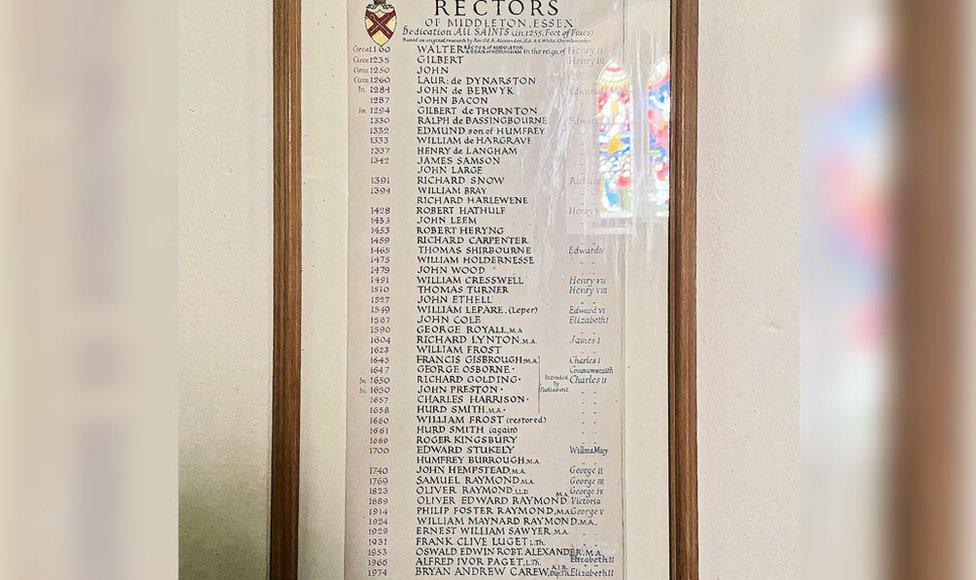
Father Luget's name can still be found fourth from bottom on Middleton's list of rectors
He says Father Luget made no public comment about the visions or sought to garner media attention.
"I think he preferred to speak to people individually about his experiences, on a "one to one" basis," Mr Halliday adds.
"Some people who came to see him were impressed by him, became his friends, and attended his services.
"I think Father Luget was quite sincere in his belief that he could see angels, and that he could perceive things that other people could not.
"I am certain that Father Luget never courted publicity and never tried to make any financial gain, or achieve any attention, or take advantage of other people because of his propensity to visions."
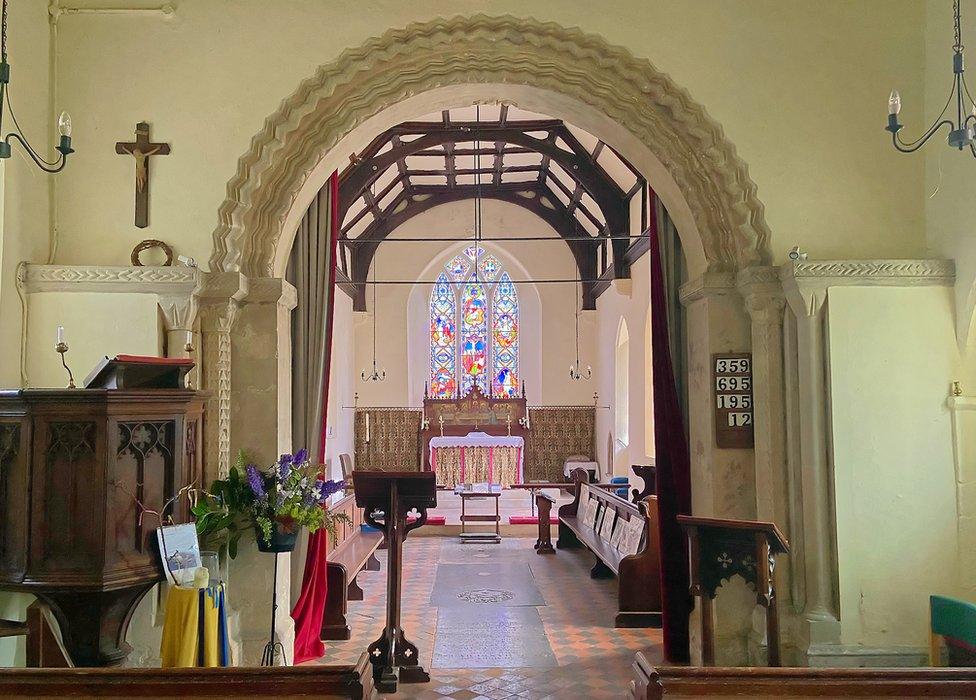
One Sunday in February 1933, he told his congregation at the 12th Century All Saints Church about a series of unusual events in the village
Protests were staged by those who felt Father Luget had brought the Church of England into disrepute, while others arrived to roam the village's narrow streets seeking out the paranormal.
Gradually, as Father Luget's eyesight deteriorated, so his congregation fell away. By the late 1940s barely anybody in the village attended the rector's services.
"He became an isolated figure," Mr Halliday says.
The then Bishop of Chelmsford investigated the situation in Middleton in 1951 and decided to retire Father Luget. He died the following year in Sudbury, aged 69. The benefice of Middleton was merged with neighbouring Great Henny.
The BBC was unable to find anybody in the village who had met or remembered Father Luget.
He and his visions are beyond "living memory" says Rev Claire Wilkinson, the team vicar for North Hinkford, which includes Middleton.
Father Luget, she says, is "not something that Middleton Church still reflects on".
The church, she says, is one of 15 in the benefice.
While congregation numbers vary, says Rev Wilkinson, one service of Holy Communion each month is held at Middleton.
"It seems amazing that Father Luget and his visions have rather faded from memory in Middleton, the village where he was rector," says Mr Halliday.
And that might have been a decent and fitting point to end this story. But reports of strange goings on in Middleton did not end with Father Luget.
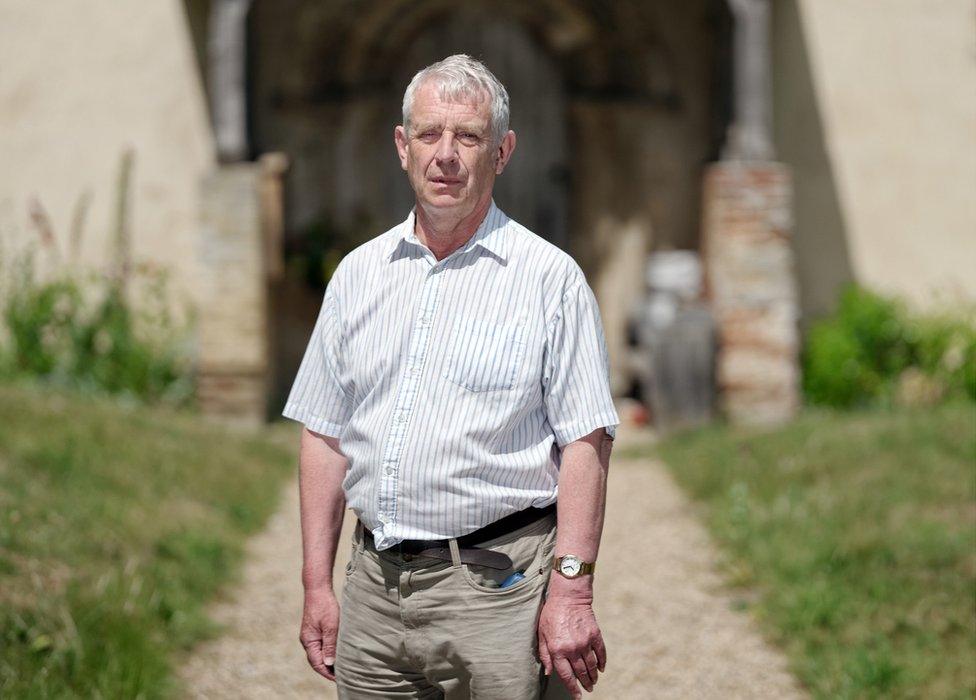
Mr Halliday says it is a "shame" Father Luget is all but forgotten in the village
Les Williams looks after the Grade II listed multi-million pound rectory site, which today is known as Queens Beeches.
"I've never heard anything about the Virgin Mary," he says. "But it is not the biggest spirit story you hear about around here."
He says the former rectory has a reputation in the village for being haunted.
"Nearly every other day something will happen in the house," Mr Williams says. "You just accept it as normal. Things move quite frequently, doors slam."
On one occasion, when he and a colleague were alone in the house working on windows upstairs, they heard footsteps coming up the stairs. There was no one there.
"There are so many stories from other people too," he says.
"As soon as you say you work here people will tell you how they used to go to dinner parties here and the girls would never go to the toilets on their own."
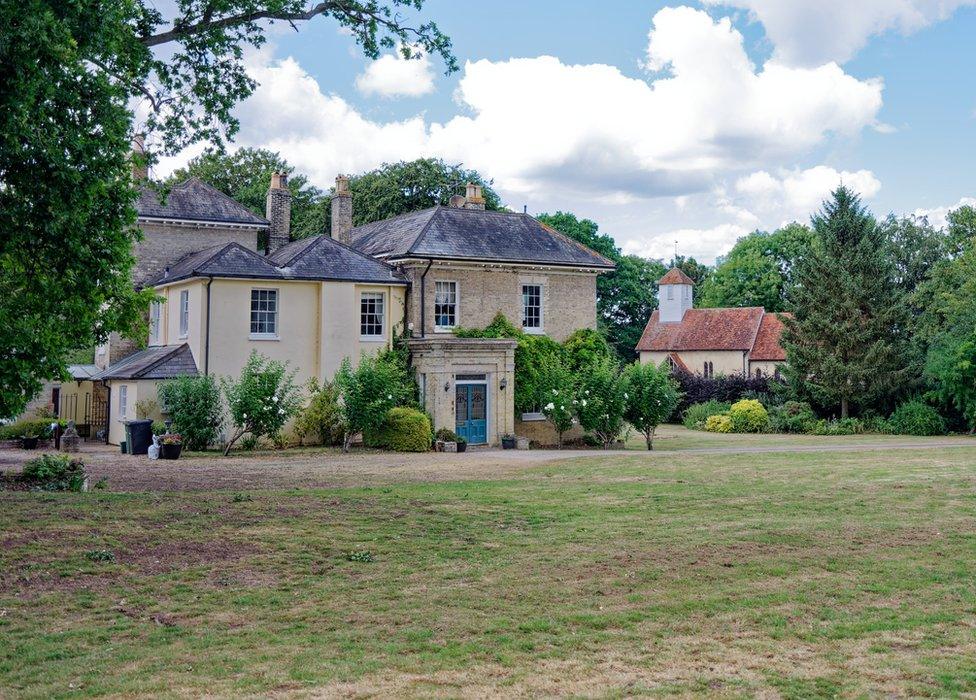
The former rectory in which Father Luget lived is now a privately-owned residence
Natasha Mullin, who also works on the estate, agrees.
"You see dark shadows in the house," she says. "You feel the presence and the mood of the house.
"My telephone has been launched across the room when it was on the table.
"It makes you jump, but it is harmless."
When the BBC tells the pair the story of Father Luget, they wonder whether the former rector had experienced what they claim to have seen, but through a religious prism.
"I'd 100% agree with that actually," says Ms Mullin.
Whether or not such incidents might have been confused with warring dragons, of course, is a completely different matter.

Find BBC News: East of England on Facebook, external, Instagram, external and Twitter, external. If you have a story suggestion email eastofenglandnews@bbc.co.uk, external